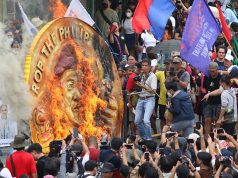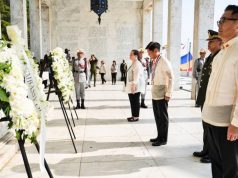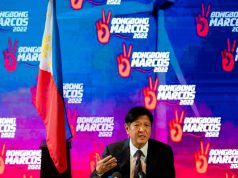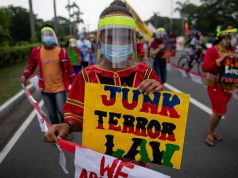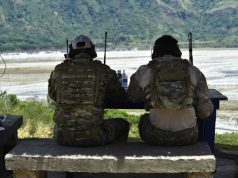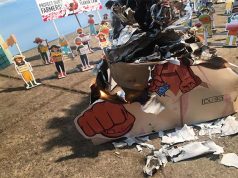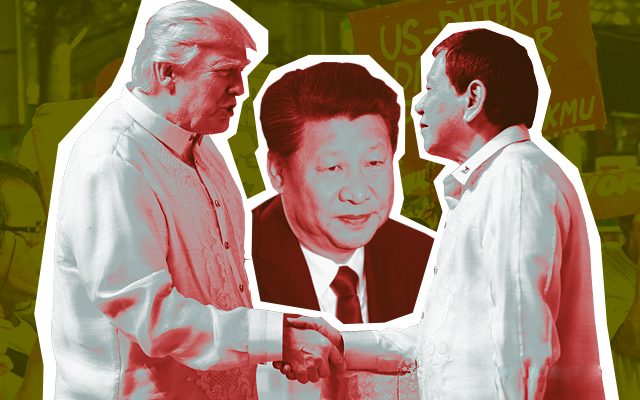
It has been a running criticism of national democrat activists that no matter who the president is, they will always protest against the “US-[Insert Name]” regime.
This has been repeated more and more as social media users raise concerns over China’s incursions into the Philippine’s exclusive economic zone and the Duterte administration’s perceived lack of action over them.
Ang copy/paste syndrome ay umabot na po sa lansangan!
US-Duterte?
Huwag namang magpahalata na bayaran talaga. pic.twitter.com/kY0mVZ3y5N
— Albert C. Lim (@limbertqc) May 23, 2018
Parang may mali sa “Rehimeng US-Duterte” mas tama yung “China-Duterte”.
— Boy Jetski (@JetskiPaMore) May 23, 2018
rehimeng US-duterte? 70s pa uso yan ah. isinantabi na nga ni dudirty ang US at mas pinili ang china. dapat rehimeng china-duterte.
— Pinoy si Wowie (@pinoysiwowie) May 24, 2018
High trust for the US among most Filipinos and a perceived hesitation by Bagong Alyansang Makabayan and its affiliated groups to criticize China has earned the activist group criticism that it is out of touch with the present situation in the Philippines.
But BAYAN has, in fact, picketed the Chinese embassy in Makati.
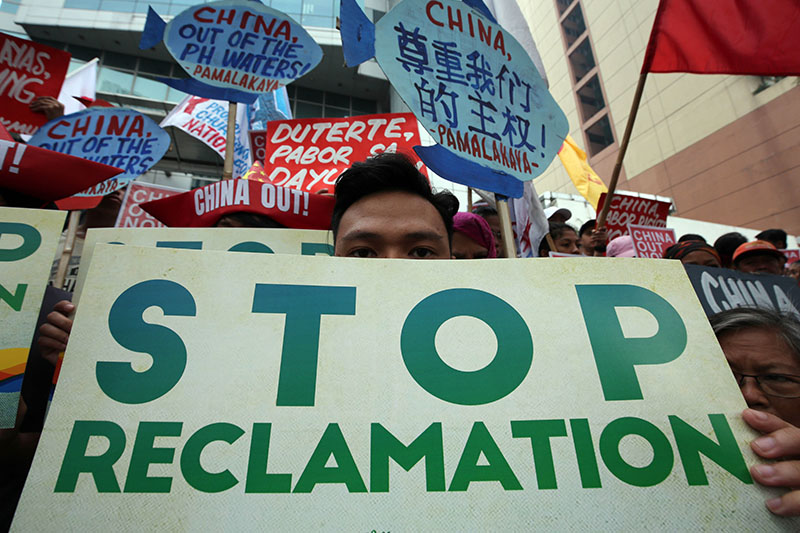
Renato Reyes, BAYAN secretary general and who has arguably protested against more “US-[Insert Name]” regimes than most, explains that the US has stronger economic, military and cultural influence over the Philippines, a former US colony that natdems say still acts like one.
“US forces are here on a permanent basis, which is as alarming as China building bases on our islands. The term US-Duterte has basis when you look at the status of the Philippines as a US neo-colony,” he tells Interaksyon in an online exchange. “It’s not just Duterte as one guy. it’s the US-Duterte regime, or the entirety of how the status quo is being run and supported.”
“The term US-Duterte has basis when you look at the status of the Philippines as a US neo-colony.” — BAYAN
BAYAN and its affiliate groups have long argued that agreements like the Mutual Defense Treaty and Visiting Forces Agreement as well as US-influenced economic policies do more harm to ordinary Filipinos than good.
It is not that China’s influence on Philippine politics is not a cause for worry, Reyes says.
“We also believe that Duterte is trying to serve two imperialist masters, seeking loans and investments from China because he also seems insecure about US support for his regime,” he says.
The Palace has touted the Duterte administration’s “independent foreign policy” as seen mostly in the president’s tirades against the US and its former president while seeking better ties with non-traditional partners like Russia and China.
Reyes points out, however, that Duterte “has to continue getting US support which is why he sent a top level delegation led by [Executive Secretary Salvador] Medialdea and [Defense Secretary Delfin] Lorenzana to the US Pacific Command recently.” Both countries reaffirmed their alliance at that meeting.
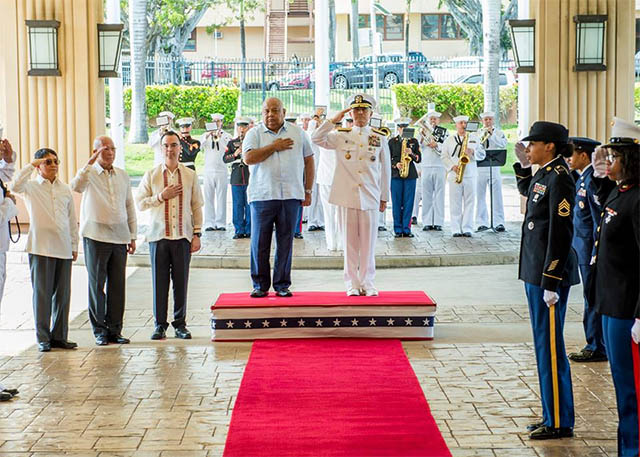
The Philippines is enjoying a resurgence of ties with China under the Duterte administration after years of tension after the 2012 standoff at Scarborough Shoal and the arbitral case that the Philippines filed in 2013.
Reyes points out that Duterte has a six-year term and it is unclear “if he can undo completely our historical status as US neo-colony in favor of being a China neo-colony.”
Related story:
Duterte’s ‘I love Xi Jinping’ on Day of Valor and other praises




